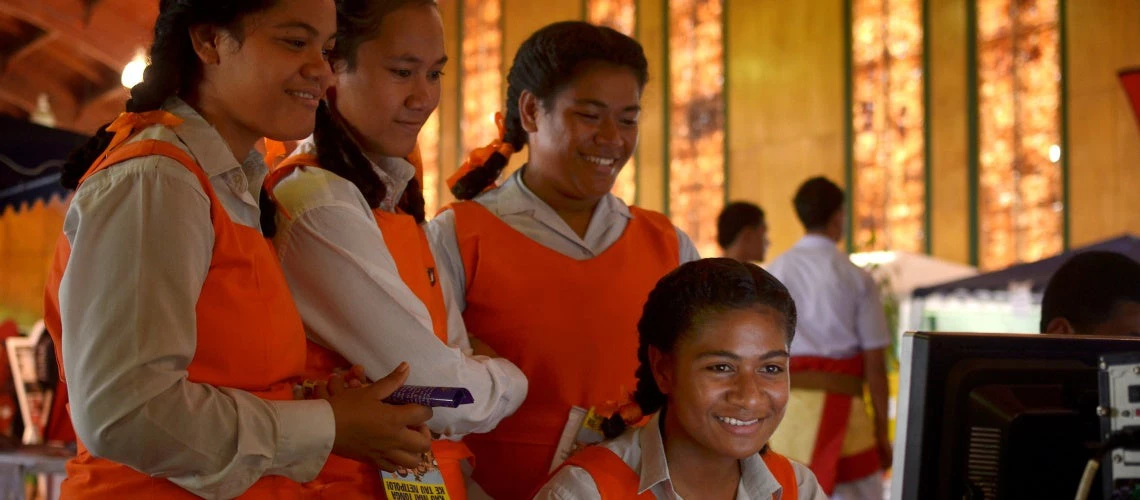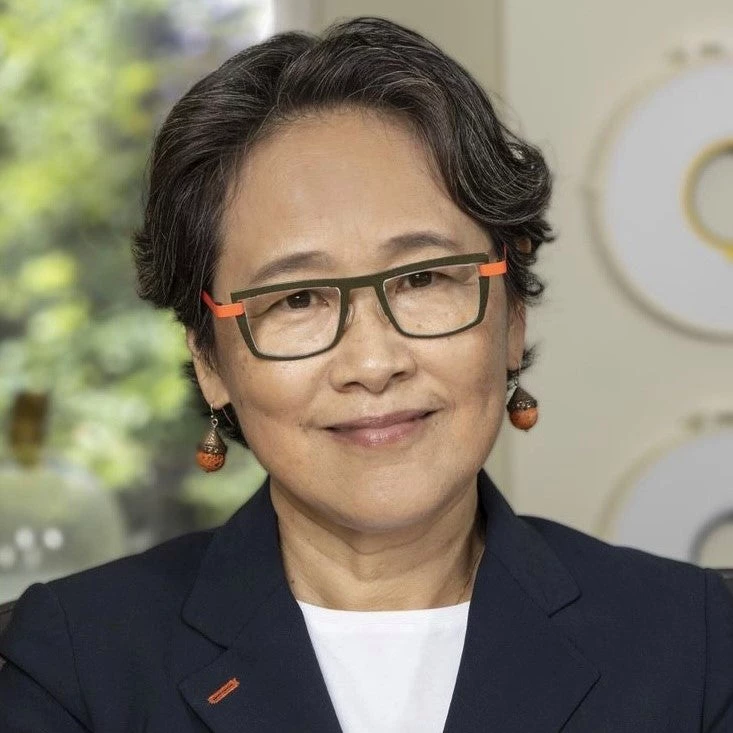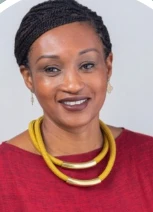 Gender data enables policy makers and businesses to take evidence-based decisions that help increase women’s well-being, access to economic opportunities and overall development outcomes. Copyright: Tom Perry/World Bank
Gender data enables policy makers and businesses to take evidence-based decisions that help increase women’s well-being, access to economic opportunities and overall development outcomes. Copyright: Tom Perry/World Bank
Gender data are key to achieving gender equality and a form of empowerment for women and girls around the world. At the global level, gender data enables policy makers and businesses to take evidence-based decisions that increase women’s well-being, access to economic opportunities and overall development outcomes. At the World Bank Group, task teams rely on gender data to inform new operations, track progress and advocate for change. Consider these success stories on how data drives global knowledge and impact:
- In Fiji, an IFC study found that each year, business and the public sector in Fiji are losing an average of 12.7 workdays per employee due to unreliable access to childcare for working parents. In response to the recommendations from this study, the government of Fiji allocated a line in the 2019-20 national budget to establish a taskforce to support early childhood care and education.
- In Mexico, World Bank analytical work revealed key obstacles to the use of childcare services. It used 2015 census data to predict the impact of additional daycare centers on female labor force participation. Based on this data, the Ministry of Finance adjusted its investment scheme to prioritize vulnerable and marginalized women, among other factors.
- In Albania, the World Bank leveraged in-depth data analysis on gaps in women’s access to assets and labor markets, to motivate the government to develop a multi-sectoral reform program supported through the first entirely gender-focused World Bank Development Policy Loan.
The World Bank Group supports and leverages gender data initiatives to inform its operations and create opportunities to engage with external stakeholders
A new publication, Leveraging Gender Data to Accelerate Equality, summarizes the World Bank Group contributions in improving the availability, quality, processing, dissemination, and use of gender data. The World Bank supports governments’ efforts to build statistical capacity in client countries and invests in methodological work that informs international standards and guide harmonization efforts. The Gender Data Portal serves as a global public good that curates and promotes the use of gender data, including through data stories and visualizations. The International Finance Corporation collaborates with its client companies to assist them in collecting and analyzing their data and assessing gender disparities in their business operations, including the representation of women in employment, leadership roles, and board seats. The World Bank Group also collects several high-profile data sets that help to monitor progress and global outcomes along specific topics, such as Women, Business, and the Law, the Global Findex Database, and the World Bank Enterprise Surveys.
You can learn more about key gender data initiatives by clicking on the links in the table below:
Made with Visme
Large gender data gaps remain and closing them will require a systematic and multi-pronged approach, including strengthening existing data systems. The forthcoming World Bank Group Gender Strategy 2024-2030 is an opportunity to double down on current efforts, including in five key areas:
- Financing. Additional funding is urgently needed to close persistent gender data gaps. The World Bank Group can link and leverage internal funding mechanisms, such as the Global Data Facility - Umbrella Fund for Gender Equality collaboration to support gender data methods, standards, production, and use. Development partners can help develop a gender data investment framework to identify and deliver more systematically on country needs and demand.
- Research. Improvements in measurement are needed across a wide range of topics. The World Bank Group is well positioned to bundle efforts to make progress on key methodological research areas to improve gender data, including how to increase use of technology and exploit the potential of administrative and other non-traditional sources of data.
- Training. New or revised international standards and definitions for collecting and harmonizing private sector and survey data often require trainings to help data producers calculate and harmonize gender indicators and follow best practices in data production, processing, and dissemination of gender data. The Strengthening Gender Statistics (SGS) approach to capacity development can be leveraged to scale up adoption of improved survey methods in World Bank projects with National Statistics Offices.
- Use of Data. Data uptake can be constrained by limited exposure to and knowledge of available gender data. The World Bank Group leverages data to drive change through operational design and support for evidence-based policies and reforms. Key gender data tools, like the Gender Data Portal, Country Gender Landscapes, SGS guidance and LSMS guidance, and evidence generated through the Gender Innovation Labs inform policy options and design of promising approaches to improve outcomes.
- Partnerships. Partnerships are essential to set the agenda and address specific gender data gaps. The World Bank Group is working in partnership with stakeholders, including policymakers, development partners, private sector firms, research institutions, civil society organizations, advocacy networks, and journalists, to build on momentum and further promote the financing, collection, and use of gender data. The WE-Finance Code launched at the Annual Meetings in Marrakech is an excellent example for a multi-stakeholder partnership to drive change: it will be piloted in over 20 countries and advance supply-side sex-disaggregated data collection for policy and practice change in the financial sector.
We want to hear from you on how we can work together to leverage gender data and accelerate change. You are invited to comment on the World Bank Group’s new Gender Strategy 2024-2030 – now out as a draft for consultation until the end of November 2023. The new Strategy has three strategic objectives: end gender-based violence and elevate human capital, expand and enable economic opportunities, and engage women as leaders.
For more information, please visit the Gender Strategy consultations website, download the consultation draft, or contact wbggenderstrategyupdate@worldbank.org.
The authors would like to thank the following colleagues for their contributions: Anna Tabitha Bonfert, Sarah Bunker, Craig Hammer, Shoghik Hovhannisyan, Andrea Kucey, and Carol Marina Tojeiro.




Join the Conversation